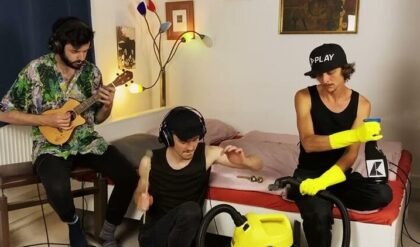In a whimsical and captivating scene, a merry-looking gray-haired woman joyfully skips towards the camera, her fingers tightly clutching a bottle of refreshing cold tea. As the camera pans out, the scene seamlessly transitions from the future to the present, revealing the woman looking visibly younger as she indulges in a swig of the invigorating beverage.
This enchanting moment is not just any ordinary TV commercial; it holds a captivating twist – the woman before us is an AI-generated actress. This groundbreaking marketing project comes from none other than Ito En, a renowned beverage company, as they take a pioneering step into the world of AI-generated performers.
Their 15-second commercial for Oi Ocha Catechin Green Tea marks the first of its kind in Japan. The overarching message of the commercial is simple yet profound – “the time to change the future is now.”
By encouraging viewers to embrace the tea, Ito En aims to inspire individuals to prioritize their health as they age gracefully. The collaboration between Ito En and AI model, a company specializing in creating AI-generated performers for marketing and fashion, has birthed this remarkable commercial. Notably, AI model has previously joined forces with Isetan Studio, a photo studio belonging to a major retailer.
Moreover, Ito En’s exploration of AI extends beyond their actress, as they have also harnessed the power of artificial intelligence to generate various design options for their plastic bottle packaging. This innovation was made possible through their partnership with Plug, a research and design firm.
The reception to this groundbreaking commercial has been a mixed bag among netizens on X, previously known as Twitter. While some individuals have wholeheartedly embraced the potential of AI in marketing, praising the quality to such an extent that they failed to discern the AI-generated actress from a real person, others expressed concerns about the future of human actors and models.
This dichotomy of reactions raises intriguing questions about the evolving role of AI in the creative industry. Earlier this year, Shueisha, a major publishing company, caused a significant stir when they released their first-ever digital photobook prominently featuring an AI-generated model named “Ai Satsuki.”
However, the reception was not entirely positive, and sales were abruptly halted just ten days later. Public criticism emerged, accusing such projects of depriving real-life models of job opportunities while eliciting a sense of discomfort due to the realization that the model portrayed was not real.
In response to the backlash, Shueisha openly acknowledged their failure to fully consider the various arguments and potential issues associated with using AI models, leading them to reconsider their usage of AI altogether. The introduction of AI into the creative landscape has undoubtedly sparked concerns within the entertainment and art industries.
A survey conducted by Art Workers Japan, an association of freelancers in the arts and entertainment domains, unveiled a staggering reality. Approximately 94% of the 27,000 respondents expressed concerns about copyright infringement and the detrimental impact of AI on their respective professions.
Furthermore, a significant 58.5% of respondents feared the looming threat of job loss due to the rise of artificial intelligence. As the world continues to embrace AI in the realm of creativity, it is inevitable that the intersection of technology and human ingenuity will yield both possibilities and challenges.
The delicate balance between innovation and preserving traditional roles is a tightrope that must be navigated with utmost care. Only time will reveal the true impact of AI on the creative landscape, while society grapples with the profound questions it presents.





